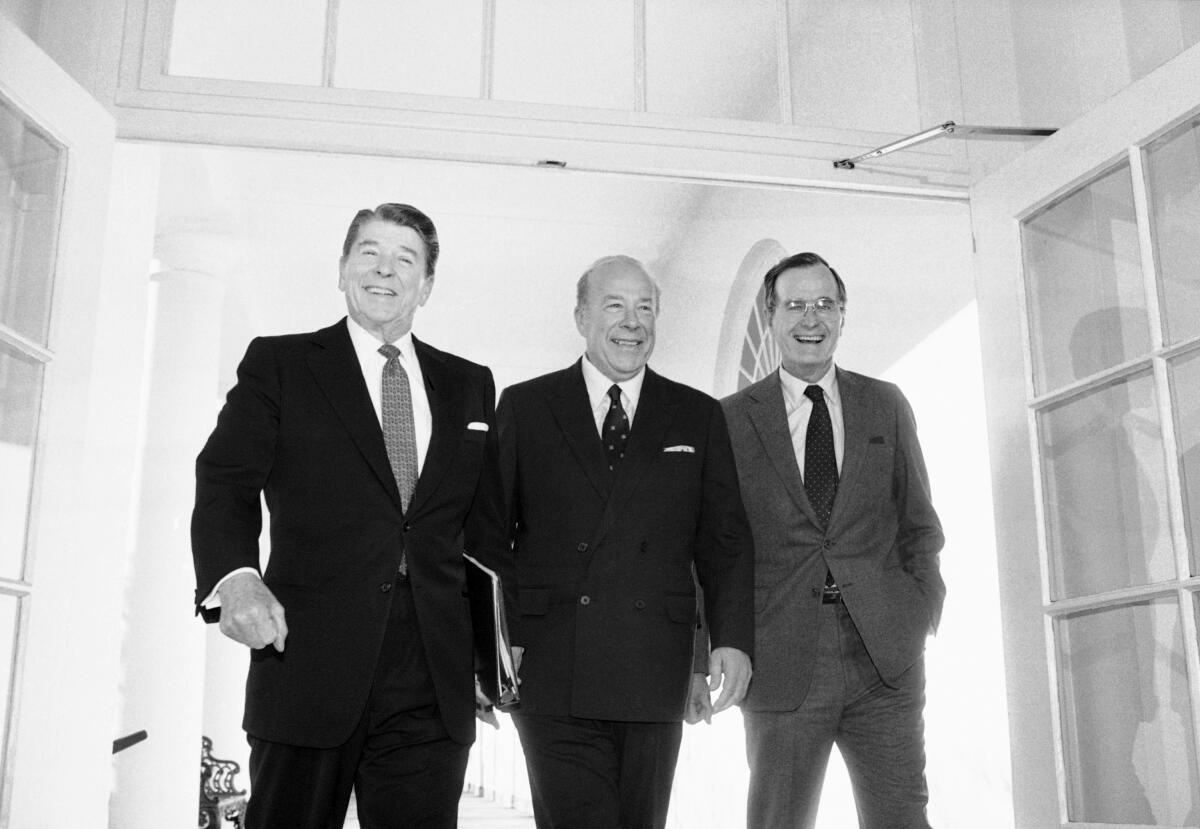Letters to the Editor: The myth of Reagan fighting the Soviets is dangerous and needs to die

- Share via
To the editor: H.R. McMaster’s and Jonathan D.T. Ward’s fairy-tale-like analysis of the Soviet Union’s collapse is potentially dangerous. That we find such mythology around Ronald Reagan to be so prevalent among “experts” illuminates the rot at contemporary U.S. foreign policy’s core.
Détente was not a “live and let live” approach, but rather a recognition — after the near-disastrous Berlin and Cuba crises — that coexistence was necessary to avoid nuclear annihilation. Reagan himself realized this after being informed that the Soviets had misperceived U.S. military maneuvers as a cover for aggression.
Soviet leader Mikhail Gorbachev terminated the Cold War when he became convinced that U.S. intentions were benign, not aggressive. The U.S. accomplished far more through seeking cooperation, not confrontation, with the Soviets.
China today, like the Soviet Union before, will not likely react well to bellicosity. To follow McMaster’s and Ward’s approach would be to once again risk what we barely avoided during the Cold War: nuclear conflict.
Charles Kohorst, Glendora
..
To the editor: The authors portray a Soviet defeat based solely on U.S. actions. But in the 1970s, years before Reagan was elected, the CIA issued a comprehensive report on the Soviet economy. It reported the slow collapse of the economy since the superpower’s peak in 1965.
The Soviets never developed successful pharmaceutical, solid-state electronic or commercial aircraft industries, to name a few. There were no major service industries like banking, real estate or travel. The Soviet Union collapsed due to its own contradictions.
The Reagan approach to the Soviet Union did work well to ensure a smoother transition from the Cold War. Transitions can be unpredictable, and our resolve to keep a strong containment strategy was useful.
China presents its own challenges. That country is not in decline. It does not present a model of prosperity as the Soviets claimed, but instead a model of stability.
This is a challenge that requires fresh approaches, not Cold War tactics.
Jim Booher, Placentia
..
To the editor: As one who voted for Jimmy Carter in 1980 and Walter Mondale in 1984, I was surprised by what McMaster and Ward described as Reagan’s strategy of containing the Soviet Union. I confess that I underestimated the president.
It should also be pointed out, however, that Reagan’s build-up of the military added a great deal to the national debt. A policy of strengthening national security should also address our debt.
John T. Donovan, Hacienda Heights
More to Read
A cure for the common opinion
Get thought-provoking perspectives with our weekly newsletter.
You may occasionally receive promotional content from the Los Angeles Times.









